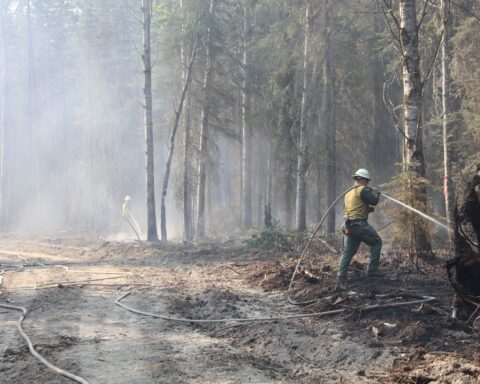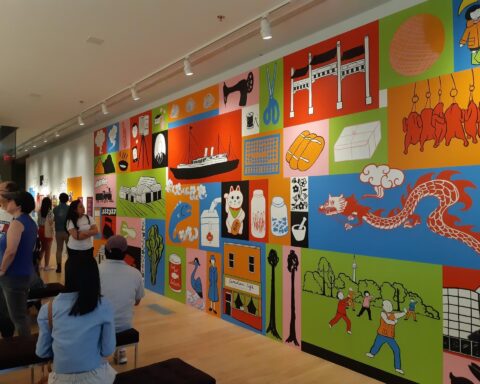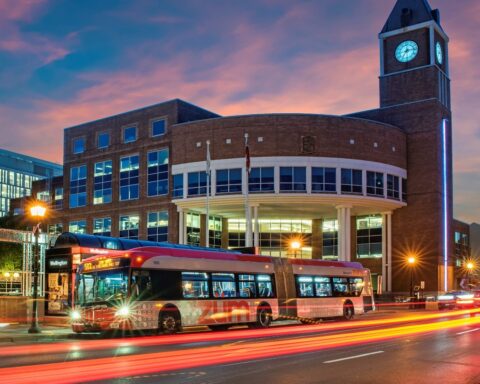My dad recently retired from the federal public service after spending over three decades serving this country. His job was to make sure that Canadian-made airplanes were as safe as possible. He was celebrated for his dedicated service by his colleagues and staff upon his retirement. Accolades came in from international safety agencies and aerospace corporations from around the world.
He immigrated to Canada in the early 1970s. Eventually settling in the nation’s capital, my dad would build a family and a life as a proud Canadian of Muslim faith. While he may have been self-conscious about his accent, it didn’t prevent others from recognizing his skill and assiduousness. Among his immigrant circle of friends: a future female dean of engineering at several universities, a future director general at the National Research Council, as well as a future chief quality officer at Atomic Energy of Canada, and so on.
It was the heyday of multiculturalism. Following the late Prime Minister Pierre Trudeau’s lead, Canadians understood that diversity was an asset to our nation, not a handicap. Immigrants were generally seen as a positive addition to our cities and towns; they brought with them critical skills, education, and commitment to making their families and their communities prosper.
Collective identity
Yet, several recent polls suggest this collective identity is at risk.
The first, a poll commissioned by the CBC, explores these very issues. While young people (aged 18-29) expressed the most level of comfort interacting with people of other ethnicities, it was surprising to note lower levels of comfort amongst people who would have worked alongside people like my dad (ages 50+).
Also of concern were perceptions around the very concept of multiculturalism. While there continues to be overall strong support for it, Canadians in Quebec and in the Prairies were less confident. When it comes to how much immigrants strengthen Canada, just over half of those polled said that immigrants are “very important to building a stable Canadian economic future.” The numbers should be higher, considering the very real need Canada has in attracting and retaining immigrants to fill labour shortages.
These concerns are reinforced by other aspects of the poll that looked at people’s perceptions of discrimination against minority groups. Over 84% of respondents believed Muslims are ‘often’ the target of discrimination; Arabs and West Asians are not far behind.
The CBC poll was conducted the week of the deadly attacks on Canadian soldiers in Ottawa and St-Jean-sur-Richelieu. It is hard to know whether the tragedies coloured people’s perceptions. Certainly, several anti-Muslim sentments were high in the weeks that followed.
Muslims and minorities
A subsequent poll commissioned by the Angus Reid Institute, the Canadian Race Relations Foundation, and the Laurier Institution, gauged specific Canadian views about Muslims and minorities in light of the attacks. And, despite the vagueness of some of the questions, there are some troubling results. Amongst these is the large percentage of Canadians who would support the the indefinite imprisonment of suspects, contrary to principles of fundamental justice.
On a positive note, a majority of Canadians see Canadian Muslim communities as ‘partners’ against the fight against radicalization, violent extremism and terrorism. This despite doomsayers who have been given a public platform at recent Senate hearings to tar the entire community with the brush of extremism, going as far as calling for a moratorium on immigration from certain countries. The federal government is reportedly even considering screening Syrian refugees on the basis of religion rather than solely on the basis of need.
Now, more than ever, our elected leaders need to stand up for the principles of multiculturalism and stand against those who try to dangerously divide Canadians with us-versus-them polemics. Perhaps, we should contemplate a ‘Zero Tolerance for Xenophobia and Racism Act’.
Amira Elghawaby is the human rights co-ordinator at the National Council of Canadian Muslims (NCCM). She is also New Canadian Media’s History and Multi-media editor.
Amira Elghawaby is an award-winning journalist and human rights advocate. Along with frequent appearances on Canadian and international news networks, Amira has written and produced stories and commentary for CBC Radio, the Ottawa Citizen, the Literary Review of Canada, and the Globe and Mail. She is currently a freelance contributing columnist for the Toronto Star.





